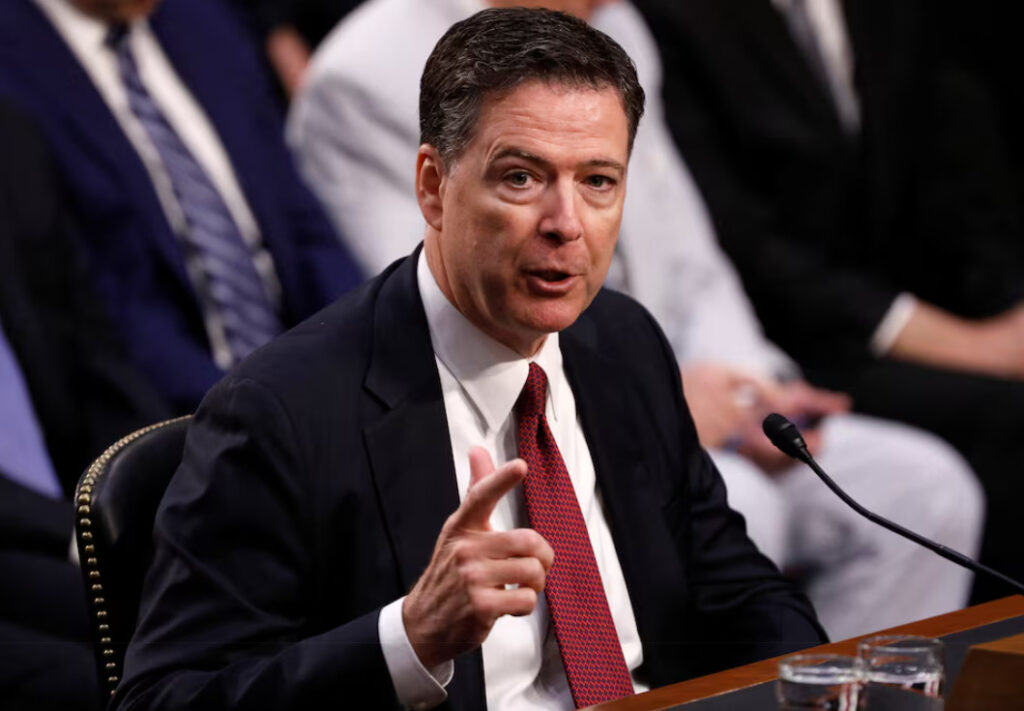WASHINGTON (Reuters) — A U.S. judge on Monday tossed out criminal charges against former FBI Director James Comey based on a procedural error, an extraordinary setback for the Justice Department in a case President Donald Trump called for as part of a campaign against perceived political enemies.
U.S. District Judge Michael Nachmanoff in Alexandria, Virginia, determined the indictment brought against Comey in September was invalid because the grand jury that approved the charges had not seen the final version of the document.
The ruling is an embarrassing rebuke for Lindsey Halligan, a close Trump ally who took over the investigation as interim U.S. attorney for the Eastern District of Virginia despite having no previous prosecutorial experience. Halligan, a former Trump personal lawyer, appeared alone before the grand jury after no career prosecutors agreed to sign on to the case.
Prosecution of Trump critics
Comey is one of three prominent critics of the Republican president indicted by Trump’s Justice Department in recent months, breaching long-standing norms of independence in federal investigations and sparking criticism that Trump is wielding the legal system to quash dissent.
Comey was charged with making false statements and obstructing a congressional investigation. Prosecutors alleged he lied to the Senate Judiciary Committee during a 2020 hearing when he said he stood behind prior testimony that he had not authorized FBI leaks about investigations into Trump and his 2016 presidential election rival, Hillary Clinton.
Comey has had an antagonistic relationship with Trump since his first term in 2017, when the president fired Comey while he was overseeing an investigation into alleged ties between Trump’s 2016 campaign and Russia.
Comey, who pleaded not guilty, mounted an array of legal challenges to the case, arguing that Halligan was unlawfully appointed as interim U.S. attorney, that the case was an improper “vindictive” prosecution engineered by Trump, and that the substance of the false statement allegation was legally flawed.
Grand jury missteps
But it was a procedural error that ultimately derailed the case.
Nachmanoff pressed prosecutors at a November 19 hearing about whether the grand jury that approved the charges had seen the final version of the indictment. The grand jury panel rejected one proposed criminal count in the indictment, forcing prosecutors to hastily fashion a new version of the document.
Prosecutors conceded at the hearing that the full grand jury had not seen the final version of the indictment, but had approved the language in both counts.
The Justice Department appeared to retract that concession the next day, pointing to a court transcript in which the grand jury foreperson had affirmed that the panel agreed on the final version of the indictment.
Prosecutors argued that the issue was not a reason to dismiss the case.
Halligan’s conduct in the Comey probe came under sustained scrutiny from three different judges involved in the case. A magistrate judge determined that Halligan may have committed other significant legal errors in instructing and presenting evidence to the same grand jury.
The Justice Department denied that Halligan engaged in any misconduct and argued that the magistrate judge’s ruling was based on misinterpretations and assumptions.
By REUTERS
Reporting by Andrew Goudsward; editing by Scott Malone and Bill Berkrot
Our Standards: The Thomson Reuters Trust Principles

